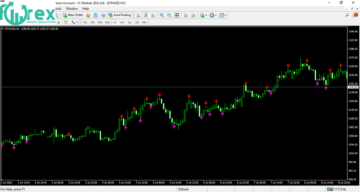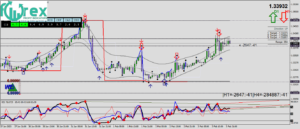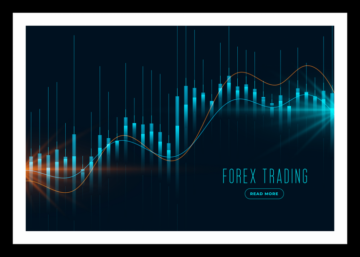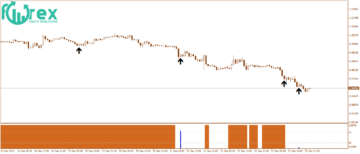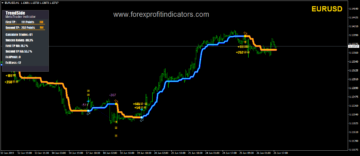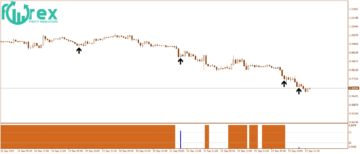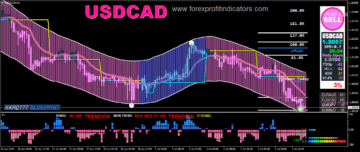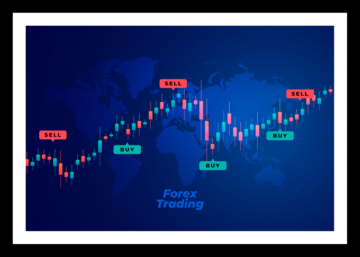
Do You Have To Pay Taxes On Forex
Tax consequences are a significant component of every investment choice, including stocks, bonds, and insurance policies.
A sophisticated comprehension of what constitutes taxable income, what is exempt from taxation, and what tax percentage is applied to what earnings amount is of the utmost importance to the wise investor.
There are several advantages to currency trading, gaining popularity as foreign exchange trading gains more and more ground. Investors need to have a comprehensive understanding of the tax implications of FX trading.
Regarding currency trading taxation, investors often lack clarity on classifying the profits subject to taxation. It is because there is no standardized method used to tax forex dealers.
It is essential for a trader who operates in decentralized markets, engages in futures and options trading, and participates in foreign exchange transactions to have a solid grasp of the applicable taxes on these activities.
Foreign exchange market participants are subject to direct and indirect forms of taxation. A direct tax is a kind of income tax levied on the earnings gained by dealing in foreign currency.
Stamp duty, the Goods and Services Tax (also known as GST), and the Securities Transaction Tax (also known as STT) are all examples of indirect taxes.
It would help if you investigated how you will be taxed to determine which of these groups applies to you. If a trader engages in forex trading as a company, all profits made from such trading will be taxed as business income rather than individual income.
If this is not the case, the amount must be taxed as “income from other sources” at the applicable rate. GST is assessed based on one of three tiers of foreign exchange transactions. These include:
Less than one lakh dollars
The taxable value on transactions with an amount that is less than one lakh dollars is just one percent of the total amount of the transaction.
The amount that must be collected must be at least 250 dollars.
This taxable value is not the whole amount of tax you will be obliged to pay; instead, it is just illustrative of the value subject to taxes in the jurisdiction in which you live.
On the other hand, the amount of tax is equal to 18 percent of the taxable value for these kinds of transactions. This is the amount that has to be paid to cover the GST.
For foreign exchange transactions less than or equal to one lakh dollars, the GST rate cannot exceed 180 dollars.
Between 1 Lakh and 10 Lakh
The taxable value of transactions under this category is dollars 1,000 plus 0.5% of the amount that is more than 1 Lakh. On the other hand, the tax rate has not changed and remains at 18 percent of the taxable value.
The Goods and Services Tax that applies to transactions of this kind might range anywhere from dollars 180 to dollars 990.
Transactions worth more than ten million dollars
It has a taxable value equal to five thousand and five hundred dollars plus one-tenth of one percent of the total amount of the transaction.
Since the tax rate is 18 percent of the taxable value, the total GST amount ranges from dollars 990 to dollars 60,000, depending on the situation.
In addition to these issues regarding GST, forex dealers are also required to pay fees. Transactions involving foreign exchange are subject to various transaction fees and taxes, including stamp duties imposed by the state and brokerage fees.
Therefore, keeping the considerations above in mind, one of the benefits of beginning your tax preparation early would be avoiding paying taxes that aren’t essential.
When forex traders sell a particular asset at a price that is more than the initial cost of acquisition, they are subject to paying taxes on the capital gains from the trade.
When they have not received any payments from their transactions, traders are not required to make any tax payment for such deals. This goes without saying.
The particular nation in question determines the precise procedures and rates of the tax on capital gains.
The following is a list of several nations’ maximum individual tax rates applicable to capital gains:
- 37 percent of the United States of America
- China – 20 percent
- Germany – 25 percent
- Greece: fifteen point five
- Japan – 20.315 percent
- Russia – 13 percent
- Twenty percent of the United Kingdom
- Switzerland: 0% of the total vote
- Sweden – 30 percent
- Spain, with a 23 percent share
Several details must be kept in mind. To begin with, many nations, including Russia, do not have a special tax rate that applies to incomes from capital gains.
On the other hand, these profits are subject to taxation at the same rate as personal income tax.
The second significant point to bring up in this context is that the rates shown up top are the highest possible rates applicable to capital gains taxation.
In many countries, the effective tax rate on certain kinds of profits may be much lower than the standard rate, depending on the total yearly income of a person and several other variables. This is the case in nations such as the United States of America and Canada.
So, do forex traders pay tax? The answer to this is not as straightforward as it may seem. Since most forex traders lose money, it would not be in HMRC’s best interest to let anybody deduct their losses from other revenue they have earned.
As a direct consequence of this, various trading instruments are governed by a unique set of regulations. And everything also relies on how much money you make.
There are four different sorts of taxes that forex traders need to be aware of:
- “Income Tax” refers to the tax levied on a person’s total earnings.
- Corporation Tax is the name given to the tax levied on the profits of limited companies.
- The profit you make from the sale of assets is subject to a tax known as capital gains tax.
- Stamp Charge Reserve Tax is a tax or duty that must be paid whenever shares are purchased.
The kind of financial instrument you trade with impacts the tax treatment.
For example, spread betting is considered to be a kind of gambling. Because you are not the owner of the assets on which you are placing a wager, you will not be required to pay Capital Gains Tax or Stamp Duty in the United Kingdom on any profits you earn from your bets.
The tax treatment of contracts for difference, sometimes known as CFDs, is unique. CFDs are exempt from the need to pay Stamp Duty; nonetheless, you will be responsible for paying Capital Gains Tax if you purchase or sell CFDs.
Check out the results of our Capital Gains Tax calculator to get an idea of how much you might be responsible for paying.
Taxes are a significant obligatory financial charge incurred by any business, including commerce. Therefore, let us investigate whether nations provide a tax-free environment for commercial trade.
Countries throughout the globe that do not impose sales taxes are the most favorable for FX dealers.
Several nations are referred to be “tax-free countries.” Because of this, residents do not have their income tax, dividend tax, or capital gain tax withheld from their payments.
The Bahamas, the United Arab Emirates, Brunei, Monaco, Turks and Caicos, the British Virgin Islands, Oman, and Vanuatu are nations that do not impose any taxes on spread betting activities.
In the not-too-distant future, this list of tax-free countries in the globe may be subject to modification.
This list is helpful for foreign exchange trading, but the nations on it are also among those that do not tax businesses (any business).
The Bahamas
And also, there are no personal income taxes in the Bahamas. Income tax is not something that has to be paid by residents. The government relies on revenues not just from tourism but also from its offshore enterprises.
Especially, there is no need for people to pay income tax, regardless of the location from where they receive their money. The $1,000 residency application fee must be paid annually to maintain one’s status as a Bahamian resident.
There are a variety of possibilities available for those looking for permanent housing, including real estate investments of $250,000.
It is also essential to highlight the many advantages of the Bahamian passport, including access to many countries without visas.
Emirates of the United Arab League
Is there no income tax or sales tax in Saudi Arabia? No, but the United Arab Emirates, popularly known as the UAE, is an Arab nation that does not impose tariffs on personal income or the profits of corporations.
It is not too difficult to get a resident visa for the United Arab Emirates. After a foreign-owned business has been created in one of their free trade regions, a resident visa will be provided to the foreign owner of the company.
Ajman, Dubai, and Ras al Khaimah are three other places where offshore firms may be established.
In addition to this, non-Dubai residents are permitted to own property inside Dubai’s developments.
Brunei
Brunei is one of the nations that allow trade without imposing taxes. Brunei is a nation that is located on the island of Borneo.
Brunei has a wide variety of residential and financial alternatives, both of which are of a high standard.
Monaco
The Principality of Monaco is a tax haven. The Principality of Monaco may be found on the French Riviera. And also, it does not levy income tax on its people.
There are four different ways to get to Monaco: boat, rail, vehicle, or helicopter.
At the moment, Monaco does not have an airport. Obtaining a residence in Monaco is a straightforward and uncomplicated process.
The Turks and Caicos Islands
The tax-free Turks and Caicos Islands may be found to the southeast of the Bahamas in the Caribbean.
And also, the Turks and Caicos Islands are included in the territory under British jurisdiction. The Turks and Caicos Islands are distinctive.
They provide expedited building licenses to locals who invest a minimum of $300,000 in constructing a new house or renovating an existing property on the islands.
One of the other options to get resident permits is investing $700,000 in a local business with numerous local owners.
[embedded content]
Top 2 FAQs and answers related to Do You Have To Pay Taxes On Forex
If you trade foreign currency in the United States, would you be subject to tax rates more significant than those in other countries?
The capital gains tax rates for forex traders in the United States may be quite steep. Nevertheless, other nations in the world have tax rates more remarkable than those in the United States.
For instance, in Denmark, the individual’s total yearly income determines the percentage of the capital gains tax that they are required to pay, which may vary anywhere from 27 percent to 42 percent.
Taxes on capital gains are levied at a rate of thirty percent in Sweden, whereas in Ireland, beginning in 2012, they have been assessed at thirty-three percent.
What are the reasons for the absence of a capital gains tax in various countries?
Several nations on our planet, such as New Zealand, Georgia, and Ukraine, do not impose any capital gains tax on the buying and selling stocks, commodities, or currency pairings.
One of the most apparent reasons for this policy is to make these nations more appealing to foreign merchants and investors.
This is one of the causes why this policy was implemented.
Investing and trading are two of the most common ways for people to make the majority of their living, and a substantial number of people fall into this category.
Consequently, some of them may consider relocating to countries with no capital gains tax to avoid paying it and save substantial money throughout their lifetimes.
Trading currencies responsibly may be a valuable asset for an investor’s portfolio since it can provide decent returns on investment.
If you have a solid grasp of forex trading taxes, you will be able to trade with more confidence in an environment where forex trading is subject to somewhat stringent regulations.
Trading Forex online is very easy, and all of the information you would need is readily accessible online; nevertheless, you should be careful to deal with only reputable platforms.
If a trader engages in forex trading as a company, all profits made from such trading will be taxed as business income rather than individual income.
If this is not the case, the amount must be taxed as “income from other sources” at the applicable rate. GST is assessed based on one of three tiers of foreign exchange transactions.
Read more: PROVEN BEST FOREX INDICATORS Your Way To Success
- SEO Powered Content & PR Distribution. Get Amplified Today.
- Platoblockchain. Web3 Metaverse Intelligence. Knowledge Amplified. Access Here.
- Source: https://www.forexprofitindicators.com/do-you-have-to-pay-taxes-on-forex/
- 000
- 1
- 10
- 2012
- 2020
- a
- Able
- above
- access
- accessible
- acquisition
- activities
- addition
- advantages
- After
- airport
- All
- alternatives
- america
- among
- amount
- and
- Annually
- answer
- answers
- anywhere
- apparent
- appealing
- applicable
- Application
- applied
- Arab
- assessed
- asset
- Assets
- available
- avoiding
- Bahamas
- based
- because
- Beginning
- benefits
- BEST
- Bets
- Betting
- boat
- Bonds
- bring
- British
- British Virgin
- British Virgin Islands
- brokerage
- Building
- business
- businesses
- Buying
- Canada
- cannot
- capital
- capital gain tax
- capital gains tax
- careful
- Caribbean
- case
- Category
- causes
- certain
- CFDs
- charge
- choice
- clarity
- Commerce
- commercial
- Commodities
- Common
- Companies
- company
- component
- comprehensive
- confidence
- Consequences
- Consider
- considerations
- considered
- constructing
- content
- context
- contracts
- Corporations
- Cost
- countries
- cover
- created
- currencies
- Currency
- deal
- dealing
- Deals
- decentralized
- Denmark
- Depending
- details
- Determine
- determines
- developments
- difference
- different
- difficult
- direct
- dollars
- Dubai
- Early
- earn
- earned
- Earnings
- Effective
- embedded
- emirates
- enterprises
- Environment
- essential
- established
- estate
- everything
- example
- examples
- exceed
- exchange
- exempt
- existing
- Fall
- fee
- Fees
- financial
- firms
- following
- foreign
- foreign currency
- foreign exchange
- forex
- Forex Trading
- forms
- found
- Free
- French
- from
- from capital
- future
- Futures
- FX
- Gain
- gaining
- Gains
- Gambling
- Georgia
- get
- given
- globe
- Goes
- goods
- Government
- grasp
- Ground
- Group’s
- helicopter
- help
- helpful
- High
- highest
- Highlight
- House
- housing
- How
- HTTPS
- idea
- Impacts
- implemented
- implications
- importance
- impose
- imposed
- imposing
- in
- In other
- include
- included
- Including
- Income
- income tax
- Indicators
- individual
- information
- initial
- instance
- instead
- instrument
- instruments
- insurance
- interest
- Invest
- investigate
- investing
- investment
- Investments
- investor
- Investors
- ireland
- island
- Islands
- issues
- IT
- jurisdiction
- just one
- keeping
- Kind
- Kingdom
- Know
- known
- Lack
- licenses
- Limited
- List
- live
- living
- local
- located
- location
- looking
- lose
- losses
- made
- maintain
- Majority
- make
- many
- Market
- Markets
- maximum
- Merchants
- method
- might
- million
- mind
- minimum
- moment
- monaco
- money
- more
- most
- name
- nation
- Nations
- Need
- Nevertheless
- New
- New Zealand
- number
- numerous
- obtaining
- oman
- ONE
- online
- operates
- Options
- Options Trading
- Other
- own
- owner
- owners
- paid
- pairings
- participants
- particular
- passport
- Pay
- paying
- payment
- payments
- People
- percent
- percentage
- permanent
- person
- personal
- Places
- placing
- planet
- Platforms
- plato
- Plato Data Intelligence
- PlatoData
- plus
- Point
- policies
- policy
- popularity
- portfolio
- possibilities
- possible
- price
- procedures
- process
- Profit
- profits
- property
- provide
- provided
- purchase
- purchased
- question
- Rail
- range
- Rate
- Rates
- real
- real estate
- reasons
- receive
- received
- referred
- refers
- regarding
- Regardless
- regions
- regulations
- related
- remains
- remarkable
- reputable
- required
- Reserve
- residents
- responsible
- Results
- returns
- revenue
- revenues
- Russia
- sale
- sales
- same
- Saudi
- Saudi Arabia
- Save
- Second
- Securities
- sell
- Selling
- Services
- set
- several
- Shares
- should
- shown
- significant
- since
- situation
- solid
- some
- something
- somewhat
- sophisticated
- special
- spread
- standard
- State
- States
- Status
- Stocks
- straightforward
- subject
- substantial
- such
- Sweden
- tariffs
- tax
- TAX HAVEN
- Taxation
- Taxes
- ten
- The
- The Bahamas
- The Capital
- the information
- The State
- the United Kingdom
- the world
- their
- therefore
- three
- throughout
- to
- too
- top
- Total
- Tourism
- trade
- trader
- Traders
- Trading
- transaction
- Transaction Fees
- Transactions
- treatment
- UAE
- Ukraine
- under
- understanding
- unique
- United
- United Arab Emirates
- United Kingdom
- United States
- UNITED STATES OF AMERICA
- us
- Valuable
- value
- variety
- various
- vehicle
- Virgin
- visa
- Visas
- ways
- What
- What is
- whether
- which
- WHO
- wide
- Wikipedia
- will
- WISE
- without
- world
- worth
- would
- Your
- youtube
- Zealand
- zephyrnet

